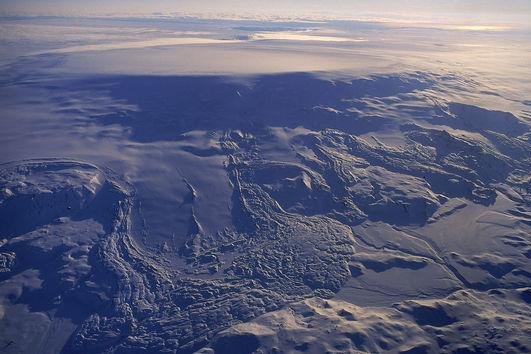REYKJAVIK, Iceland, Aug. 29 (UPI) -- After days and days of earthquakes, Iceland's Bardarbunga volcano finally erupted Friday, prompting Icelandic officials to raise the aerospace alert level to code red -- only to lower it back to orange hours later.
Reykjavik's Meteorological Office said the small fissure eruption began in the wee hours of Friday morning. Fresh molten lava oozed from a crack in the Holuhraun Lava Field just north of the Vatnajokull glacier, compelling Icelandic Air Traffic Control to momentarily create a no-fly-zone bubble.















